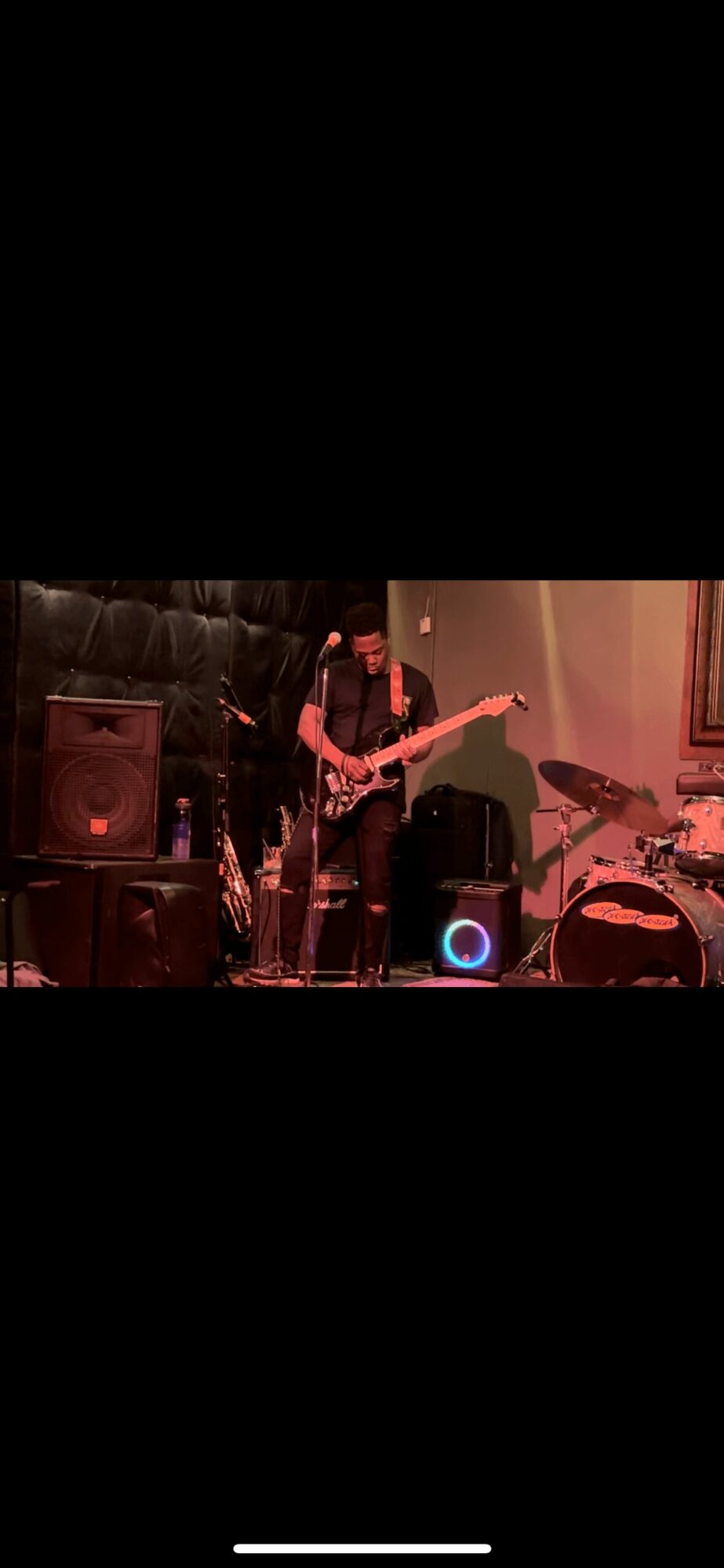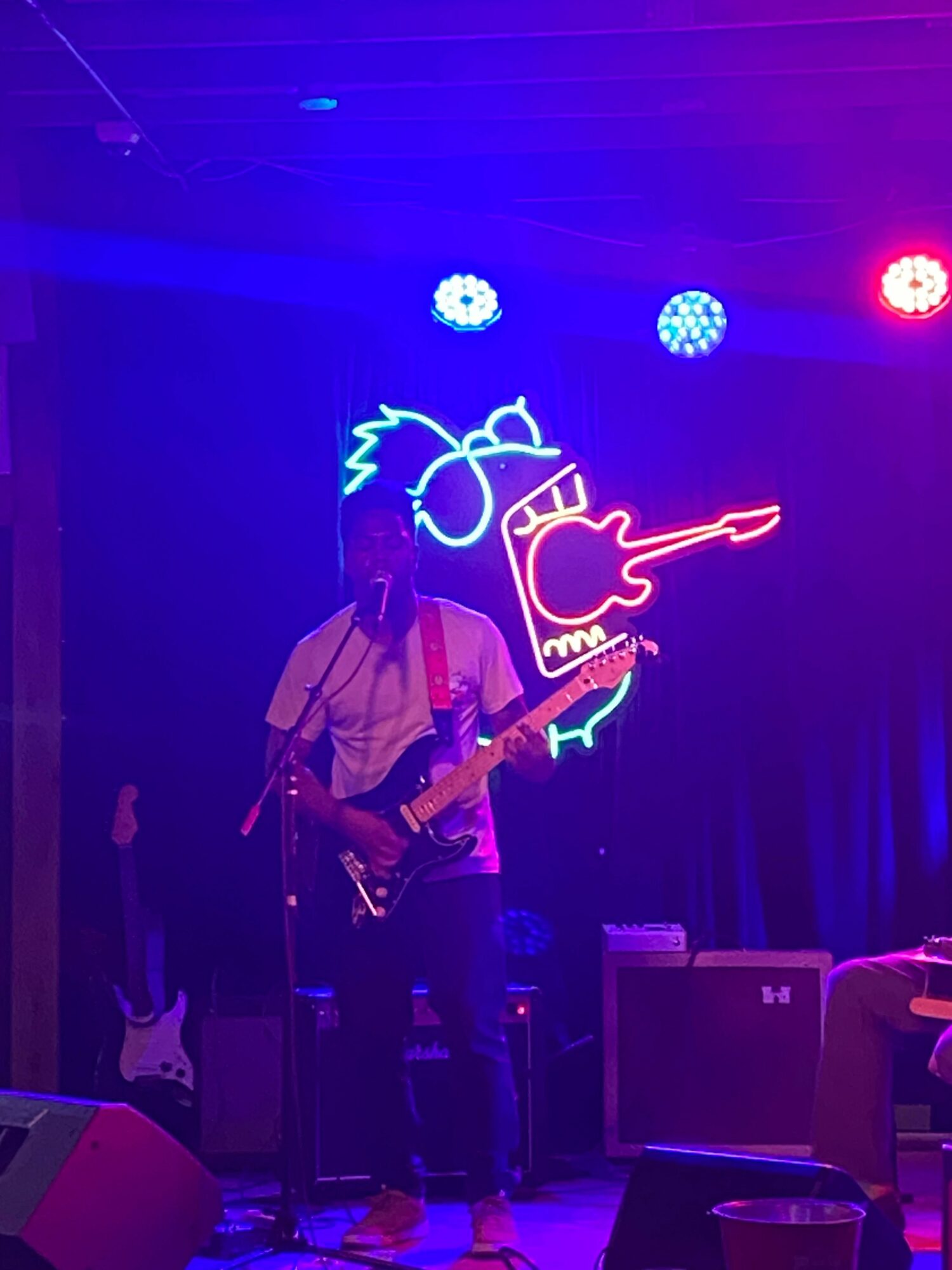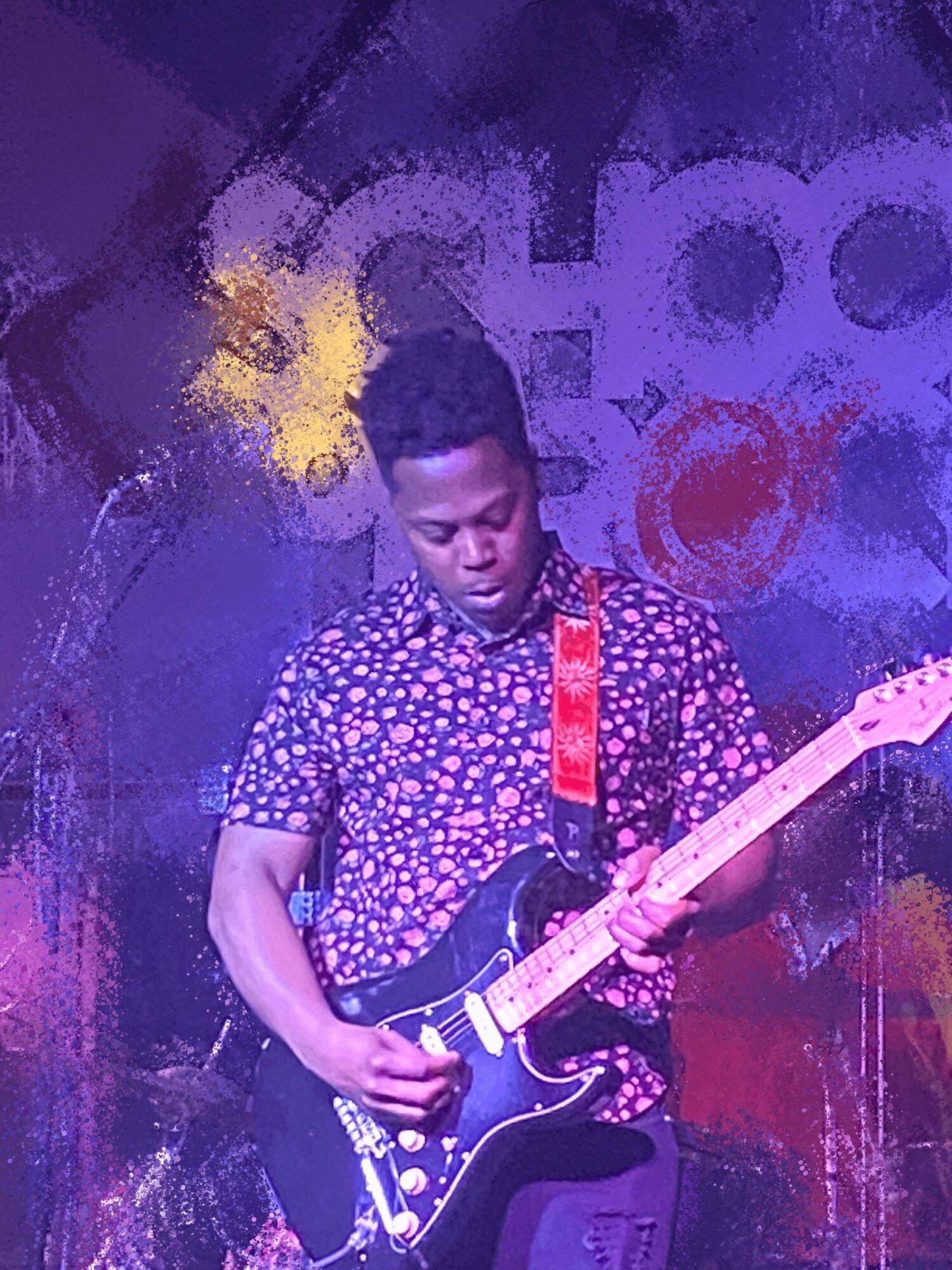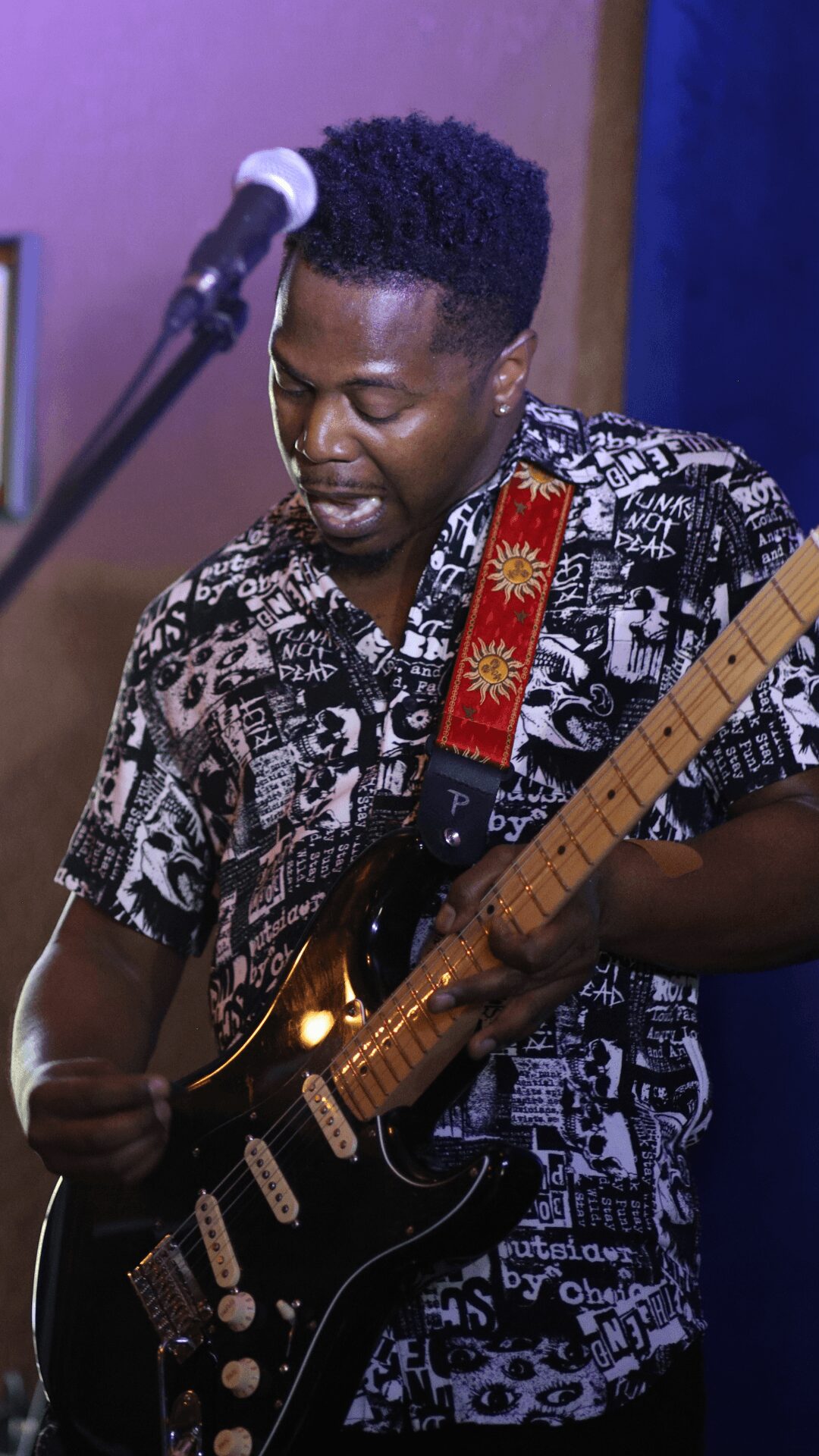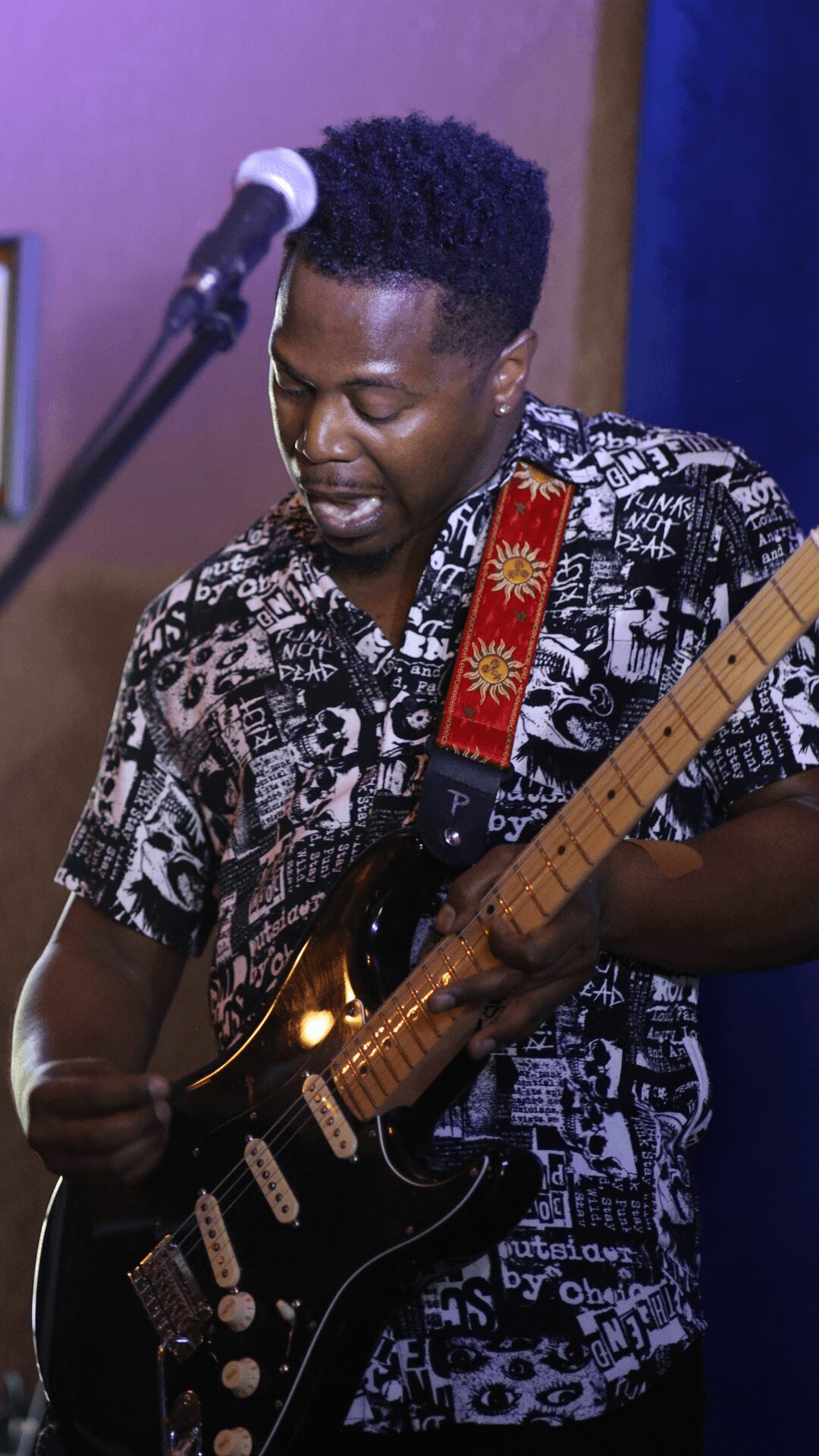

We recently had the chance to connect with Terrell Quillin and have shared our conversation below.
Terrell, so good to connect and we’re excited to share your story and insights with our audience. There’s a ton to learn from your story, but let’s start with a warm up before we get into the heart of the interview. Have you ever been glad you didn’t act fast?
I’ve learned there’s power in patience. As an artist, it’s tempting to rush—whether it’s dropping music, booking shows, or jumping into partnerships. But I like to step back and observe first. Some of my best decisions came from taking time to read the room, feel the energy, and trust the timing. Waiting has saved me from signing bad deals, chasing trends that didn’t last, or aligning with people who weren’t really for me. I’d rather move with purpose than move fast.
Can you briefly introduce yourself and share what makes you or your brand unique?
My name is Q, and I lead a band called The Rolling Sevens. We’re a blues-rock-funk group based in Texas, blending raw emotion, groove, and storytelling in everything we play. For me, music isn’t just performance—it’s documentation. I use sound to honor where I come from, speak to the present, and imagine new futures.
I’m a guitarist and vocalist with roots in radio, community work, and cultural storytelling. My brand lives at the intersection of Black southern creativity, live musicianship, and digital-age expression. Whether I’m writing songs, hosting jam nights, or curating performances, my goal is to create spaces that feel alive—where people feel seen, whether they’re in the crowd or on the mic.
Great, so let’s dive into your journey a bit more. Who were you before the world told you who you had to be?
Before the world told me who I had to be, I was just a kid trying to find rhythm in a world that didn’t make much noise for me. I grew up without a father, so I spent a lot of time figuring out who I was through trial and error. In my early years, sports became my identity—not because I truly loved it, but because it was what was expected of me. It was safe. It gave people something to root for, and it gave me a mask to wear.
But deep down, I always felt something else pulling at me—something quieter, more expressive, more reflective. It wasn’t until I realized I had no real future in sports that I started to explore art. At first, even that felt like a betrayal. Like I was stepping out of the role the world had assigned to me. Saying “I’m an artist” didn’t come naturally. It took years to even let myself say that out loud.
Now, I know that before all the expectations, I was an observer. A feeler. Someone who found rhythm in silence. Music helped me reclaim that original self—the one who was creative long before he had the words or confidence to claim it. Art gave me back to myself.
If you could say one kind thing to your younger self, what would it be?
10,000 hours.
I’d tell him that greatness takes time—and that he’s not behind, he’s just building. I’d tell him that the process matters more than the performance, and that struggling doesn’t mean you’re failing—it means you’re learning. That every awkward open mic, every fumbled chord, every second-guess, every moment spent creating when no one’s watching—it all adds up.
There were so many times I felt like I was chasing something I’d never catch. Like I had to prove I belonged in a space before I even fully understood myself. But the truth is, mastery isn’t magic—it’s momentum. You keep showing up, you keep refining, and eventually, you look up and realize you’ve become the very thing you once doubted you could be.
So I’d say this with love: You don’t have to get it all right today. Just put in your hours. Keep going. You’re becoming.
Sure, so let’s go deeper into your values and how you think. What’s a belief or project you’re committed to, no matter how long it takes?
I’m committed to building a body of work—musical and cultural—that reflects truth, groove, and legacy. I don’t just want to release songs. I want to create moments. Community. Conversation. Whether it’s through The Rolling Sevens live shows, jam sessions, or songs that feel like they were written for your drive home, I’m in it for the long haul.
The belief that anchors me is this: The slow build is the real build. We live in a time where people chase instant success, but I’ve always known that what lasts isn’t rushed. It’s refined. I don’t mind taking years to get it right if it means my art is honest—if it reaches the people it’s meant to.
My goal isn’t just to be heard—it’s to mean something when I am. Whether that takes ten years or a lifetime, I’m committed to that purpose.
Okay, we’ve made it essentially to the end. One last question before you go. What is the story you hope people tell about you when you’re gone?
I hope people say I made space—for truth, for sound, for people to be fully themselves. That I used my voice and my craft to tell stories that mattered, especially for those who felt overlooked or unheard.
I want the story to be: He didn’t just play music—he built something. Something that brought people together. Something rooted in soul, purpose, and community. I hope people remember that I didn’t chase trends—I built legacy. That I stood firm in who I was, even when it would’ve been easier to conform. That I believed in slow growth, deep work, and honest connection.
If people say, “Q gave his all to the culture—he showed up with integrity, created opportunities, and left something behind that still moves people,” then I’ll know I did what I came here to do.
Contact Info:
- Instagram: https://www.instagram.com/therollingsevens/
- Linkedin: https://www.linkedin.com/in/terrellq/
- Facebook: https://www.facebook.com/bootleglikejazz
- Youtube: https://youtube.com/shorts/9bH-_Xaimss?feature=share
